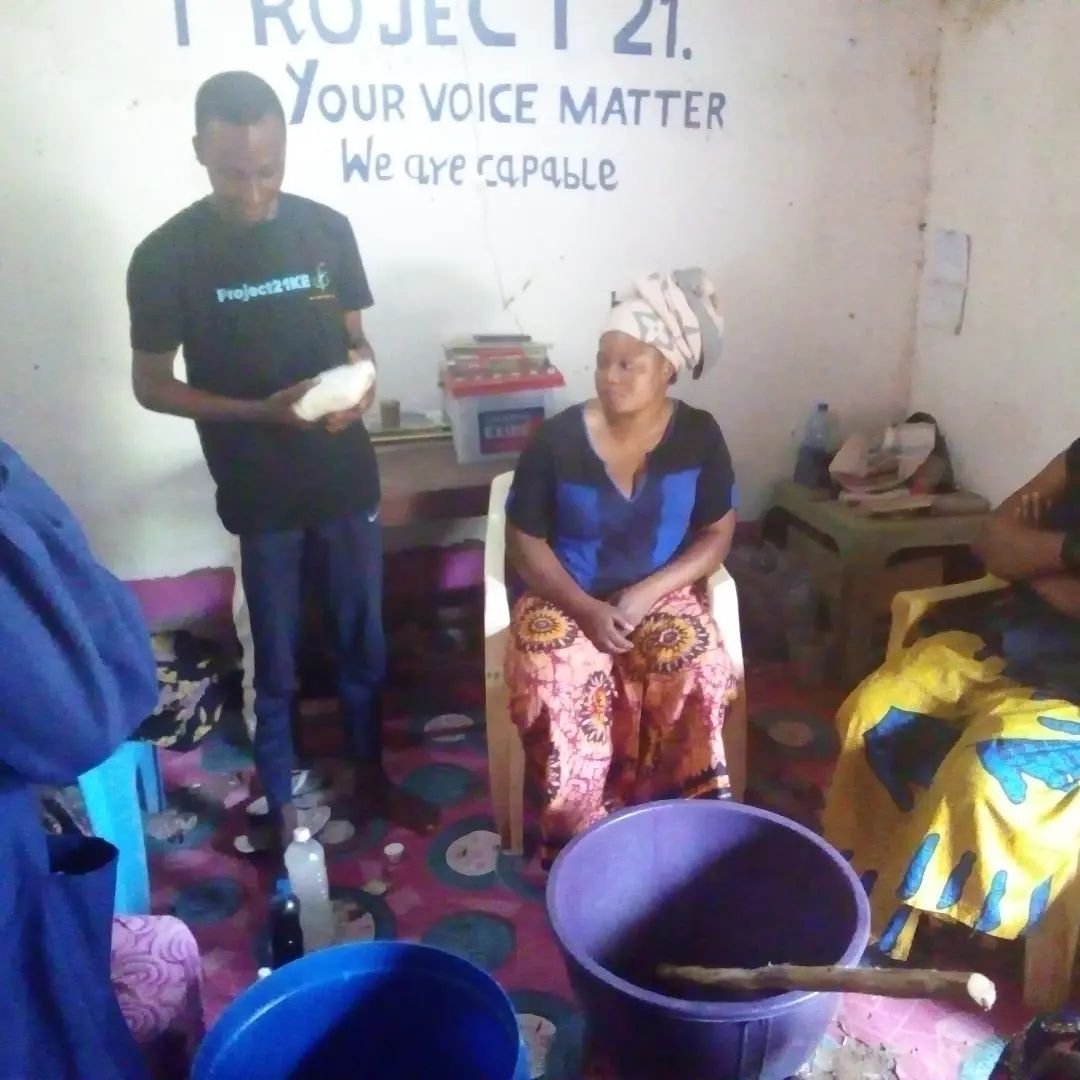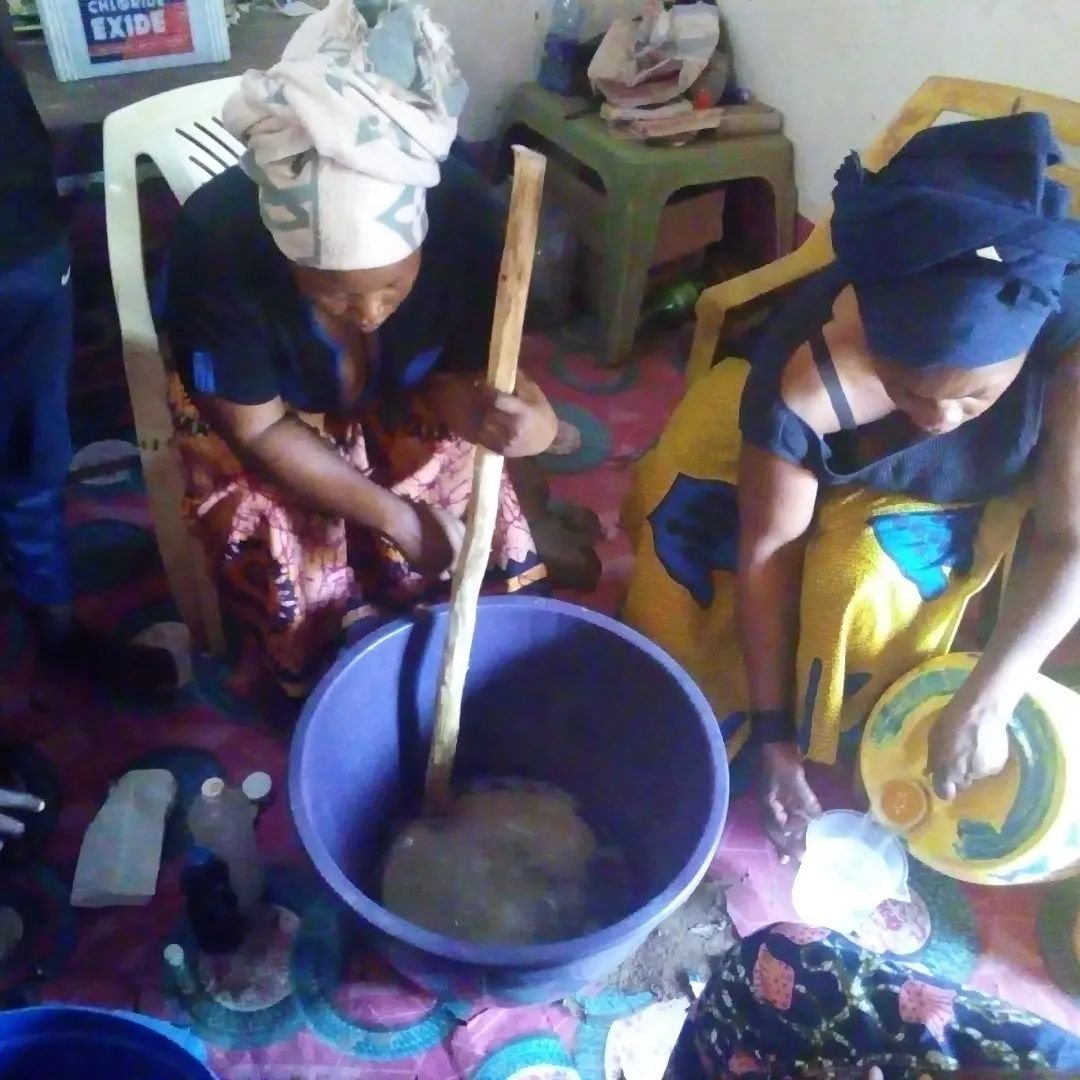A glimpse into Project 21 KE, a humanitarian initiative created and led by Amala alumni
Project 21 KE was started by five Amala alumni in 2021, the year that gave the organisation its name. It was created to help bring change to the communities in Kakuma Refugee Camp, particularly focusing on reducing poverty and tackling gender inequality. The success of Project 21 KE is even more impressive as these students were between 15-17 years old when it began. We sat down with two of its members, John and Hamden, to learn more about the initiative.
“It is only through our education and knowledge, what Amala gave us, that we are able to work towards creating a better space for everyone.”
From Amala to Project 21 KE
John and Hamden are Amala alumni and two of the founding members of Project 21. Both credit Amala for inspiring them to help others, as it was through Amala’s Changemaker Foundation Programme, run in partnership with UWC and Rise, that they realised they could make a real difference in Kakuma. John explains how before finding Amala they were “just focusing on our studies in our school so we could get a good grade and feed our families, but after Amala we realised we could help the community.”
“Amala unites different people behind common causes and makes them work together… that's why Project 21 is not only based in one community or tribe. We have diverse people inside us and that strengthens us as we work together to solve many challenges in Kakuma.”
During the programme the students were also taught how to develop a project, the skills to manage it, various ways to fundraise, and how to build a local network. In this way Amala helped set the foundation for Project 21, and continues to help through its support and the mobilisation of its international network.
“the more we do this, the more you feel better, the more we feel better, the more our community feels better.”
A running start
The project began as an initiative which focused on teaching women and children in the community literacy and technical skills and then expanded into an initiative that organises and carries out charity work. They provide support through small things such as basic necessities and items, as well as through bigger projects. Project 21 has supported and encouraged youths to work hard in school and take care of themselves; ran various workshops to support women, including women empowerment sessions and liquid soap making classes; and fundraised to help individuals in dire need.
“Understanding what the community needs from the community itself is what makes us unique and motivated… as fellow refugees, we aim at massively making an impact on the lives of marginalised people.”
Change: one life at a time
Kakuma Refugee Camp sees a lot of people in difficult situations, and because of this, Project 21 seeks out the most vulnerable people in the community to aid; something which they do through surveys, interviews and word of mouth. They are confronted with many challenging cases, but always make an effort to find those who are most in need.
This is how they found Sandrine, a single mother of five, whose family’s home was destroyed by heavy rains. The six of them had been living in a tent, at the mercy of the elements for eight months, when Project 21 found them and raised the funds to help Sandrine rebuild her home. With this weight off her shoulders, Sandrine can now focus on other things which are important to her: feeding her children and buying them books; as she believes that “education is the only thing I can give them for now,” a message that resonates with the core beliefs of both Amala and Project 21.
“The Amala programme has changed our lives, it’s changed us in ways that have helped us help the community… so in a way, our achievements are also Amala’s achievements.”
The importance of education was central to the story of John Akoch, another person Project 21 chose to help, and who believes that “education is the only way I see that can take me through this narrow road of life.” This motivated young man dreamed of completing his education despite his financial situation, and was found in the same way as Sandrine. With the help of Project 21, which paid for John’s school registration fee, his transport, uniform and learning materials, John was able to begin his secondary education in October 2021.
Women in action
Project 21’s current mission heavily focuses on women in need, as they have been found to be the most vulnerable group in Kakuma Refugee Camp. WIA (Women in Action) is an initiative whose focus is to give at-risk women employable skills through which they can become independent while supporting themselves and their families. The first WIA project revolves around suit making and tailoring, run for the first time in January 2023.
“I believe education is powerful because it never ceases, it can always be passed on to someone else and continue creating positive change.”
Run over the course of five months, the aim of these workshops is to give women the tools, materials and ability to market themselves as seamstresses. The idea is that these women will not only use their skills to sustain themselves in the long term, but also recommend the course or pass them on to other women themselves. The idea for a tailoring project was crowdsourced from a survey directed at vulnerable women, as many of them suggested sewing skills would be invaluable, as they are transferable and in demand in Kakuma. Tailoring is a male-dominated profession in Kakuma, as women are simply not taught the skillset, but Project 21 saw it fit to make sure women weren’t left behind, believing that “women have the power to do it, and if they are only given an opportunity, a chance, they can even do it better.”
Unlike other tailoring courses run in the camp, the WIA programme does not require school certificates, prior experience, or literacy, as it is a practical skill and can be taught verbally and visually. Project 21 sees the importance of having a woman lead the workshop as she could act as a relatable role model for her students, showing them what they are capable of achieving with self-belief and dedication.
In the future Project 21 KE plans to continue to organise and run similar programmes to keep creating positive changes in the communities within Kakuma, and someday, on a global scale.
“It’s like Amala has planted something in our minds, like a seed that grows more and more as we continue to implement it… what we’ve achieved is amazing, so Amala has to continue what it’s doing.”
Stay updated on all Project 21 KE activities and achievements below:
Youtube channel: https://www.youtube.com/@project21global25
Facebook: https://www.facebook.com/project21kakuma
GoGetFunding: https://gogetfunding.com/project21/







